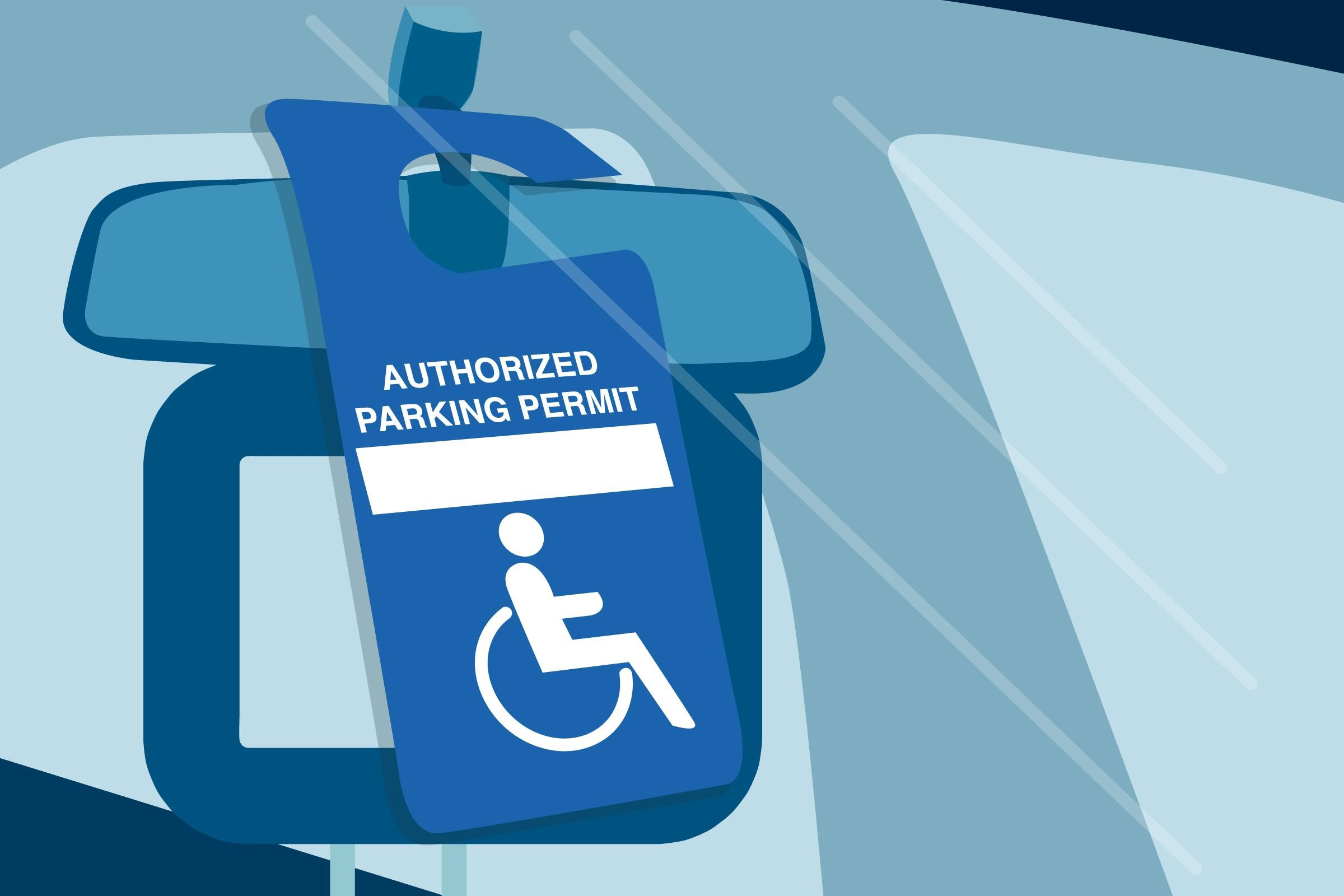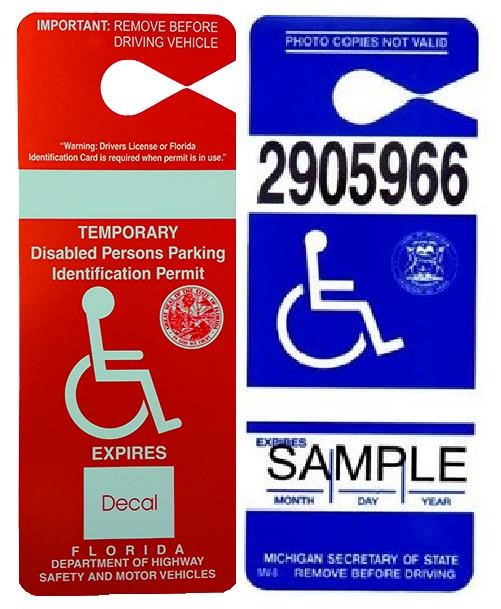Eligibility for a Georgia Handicap Parking Permit
Georgia handicap parking permits are available to residents with qualifying disabilities․ A medical professional must verify the applicant’s condition, using criteria defined by Georgia law․ The verification process involves completing the necessary forms and submitting the required documentation to the relevant authorities․ The permit type (temporary or permanent) depends on the duration of the disability․
Who Qualifies?
Eligibility for a Georgia handicap parking permit hinges on a documented disability significantly impairing mobility․ This impairment must meet specific criteria outlined in Georgia state law․ Applicants must provide medical documentation confirming their condition, signed by a qualified medical professional․ Accepted professionals include doctors of medicine or osteopathic medicine, and podiatrists․ The documentation must clearly state the nature and impact of the disability on the applicant’s ability to walk․ The duration of the disability determines whether a temporary or permanent permit is issued․ Temporary permits are for disabilities expected to last six months or less, while permanent permits are for long-term or permanent conditions․ The application process requires a completed and notarized Form MV-9D, the Disabled Persons Parking Affidavit․ This form, along with supporting medical documentation, must be submitted to the appropriate county tag office․
Required Medical Documentation
Securing a Georgia handicap parking permit necessitates providing comprehensive medical documentation․ This documentation must be completed and notarized by a licensed medical professional, specifically a doctor of medicine, osteopathic medicine, or a podiatrist․ The physician’s statement needs to explicitly detail the nature of the applicant’s disability and its substantial impact on their ability to walk․ Vague descriptions are insufficient; the documentation must clearly demonstrate a significant mobility impairment that justifies the need for a handicap parking permit․ The form used for this verification is the official Georgia Department of Revenue Form MV-9D, the “Disabled Persons Parking Affidavit․” This form requires the physician’s signature, their license information, and a clear, concise explanation of the applicant’s condition and its effect on their mobility․ Incomplete or unclear documentation will result in application delays or rejection․ Ensure all information is accurately and legibly provided to expedite the process․

Obtaining a Georgia Handicap Parking Permit
Applications for Georgia handicap parking permits can be submitted in person or by mail to your local county tag office․ The process requires completing Form MV-9D and providing necessary supporting documentation, including a valid Georgia driver’s license or ID card․
Application Process⁚ In-Person or Mail
Applying for a Georgia handicap parking permit offers two convenient options⁚ in-person submission or mailing your application․ The in-person method involves visiting your county’s tag office during their operating hours, presenting the completed application, and any necessary supporting documentation․ This allows for immediate processing and potential same-day permit issuance, depending on the office’s workflow and the completeness of your submission․ Alternatively, the mail-in option provides flexibility for those unable to visit the tag office in person․ Applications and supporting documents should be mailed to the designated address for your county tag office, ensuring all required materials are included to avoid delays․ Allow extra processing time for mailed applications compared to in-person submissions․ Remember to retain a copy of your application and supporting documentation for your records․ Both methods require a completed and notarized Form MV-9D, along with your Georgia driver’s license or identification card․
Required Forms⁚ MV-9D
The cornerstone of the Georgia handicap parking permit application is Form MV-9D, officially titled the “Disabled Persons Parking Affidavit․” This crucial document serves as the primary verification of your eligibility for a permit․ It requires completion by a licensed medical professional—a physician, osteopathic physician, or podiatrist—who attests to your qualifying disability․ The form necessitates detailed information about your condition and its impact on your mobility․ The doctor must not only sign the form but also have it notarized, adding a layer of official verification․ Accurate and complete completion of Form MV-9D is vital; inaccuracies or omissions can cause delays or rejection of your application․ Downloadable versions of Form MV-9D might be available online through the Georgia Department of Revenue or your county tag office website․ Always ensure you obtain the most current version of the form to avoid processing complications․ Failure to properly complete this form will delay your application․
Necessary Supporting Documents
Beyond the essential Form MV-9D, additional documentation may be required to support your Georgia handicap parking permit application․ This often includes a copy of your Georgia driver’s license or state-issued identification card, verifying your residency and identity․ The address on this identification must match your current residence․ If applying by mail, ensure your mailing address is clearly indicated on all submitted forms and documents․ Depending on the specifics of your case, further medical evidence might be requested․ This could include additional medical reports, physician’s notes, or test results bolstering the information provided in Form MV-9D․ Always keep copies of all submitted documents for your records․ Failure to provide all required documentation can lead to delays or rejection of your application․ Contact your local county tag office for a complete list of any additional documents they may require before submitting your application․
Types of Permits and Their Validity
Georgia offers two types of disabled parking permits⁚ temporary, for disabilities lasting six months or less, and permanent permits for long-term conditions․ Permit validity periods vary depending on the type issued․
Permanent Permits
Permanent Georgia disabled parking permits are issued to individuals with disabilities expected to last indefinitely․ To obtain a permanent permit, applicants must submit a completed and notarized Disabled Persons Parking Affidavit (Form MV-9D) along with supporting medical documentation from a qualified physician․ This documentation must clearly state the nature of the applicant’s disability and its impact on their mobility․ The form must certify that the individual meets the state’s criteria for a permanent permit․ The application process typically involves visiting the local county tag office in person or submitting the application through mail․ Renewals for permanent permits are generally free, although there might be a fee for renewing a disabled license plate associated with the permit․ The process for obtaining a permanent permit ensures that only those with genuinely qualifying conditions receive the benefit of accessible parking․ The DMV or county tag office will specify any additional required documents․
Temporary Permits
Temporary Georgia disabled parking permits cater to individuals experiencing a temporary disability anticipated to last six months or less․ Securing a temporary permit requires a completed and notarized Form MV-9D, the Disabled Persons Parking Affidavit, accompanied by medical documentation confirming the temporary nature and impact of the disability on mobility․ This documentation, from a qualified medical professional, should clearly outline the expected duration of the condition․ The application procedure mirrors that of permanent permits, involving either in-person submission at the county tag office or mailing the completed application․ Unlike permanent permits, temporary permits have a defined expiration date, contingent upon the anticipated duration of the disability as stated in the medical documentation․ Renewal of a temporary permit might necessitate a new application with updated medical verification if the disability persists beyond the initial timeframe․ Applicants should carefully review the guidelines provided by the Georgia Department of Revenue for specific requirements․

Renewal and Replacement of Permits
Georgia handicap parking permits require renewal for permanent permits and replacement if lost or stolen․ The renewal process and required documentation vary depending on permit type․ Contact your local county tag office for specific instructions․
Renewing a Permanent Permit
Renewing a permanent Georgia handicap parking permit is a straightforward process, generally free of charge․ However, it’s crucial to understand that while the placard renewal itself is cost-free, renewing a disabled license plate associated with the permit incurs a $20 fee․ To initiate the renewal, you’ll need to contact your local county tag office well in advance of your permit’s expiration date․ They will provide you with the necessary forms and instructions․ While a physician’s recertification might not always be required, it’s advisable to check with the tag office to confirm the specific requirements․ Be prepared to provide proof of identity and current address․ Prompt renewal prevents any disruption in your access to designated parking spaces․ Failure to renew on time may result in the need to reapply as if it were a new permit application, potentially involving more extensive documentation․ Plan ahead to ensure a smooth and timely renewal process․
Replacing a Lost or Stolen Permit
If your Georgia handicap parking permit is lost or stolen, immediate action is necessary to regain access to designated parking․ The process for replacing a lost or stolen permit involves contacting your local county tag office․ You will need to report the loss or theft to the authorities, and it’s highly recommended to file a police report for documentation purposes․ The tag office will guide you through the replacement procedure․ You may be required to provide proof of identity, residency, and potentially supporting documentation related to your disability, depending on their specific requirements․ There might be a small fee associated with the replacement, but this varies by county․ It’s crucial to act promptly to minimize inconvenience․ A delay in reporting and replacing the permit could lead to delays in obtaining a new one․ The tag office will provide information on the required forms and any additional steps necessary to expedite the replacement process․ Keeping a copy of your permit information, such as the permit number, can also help to streamline the process․
